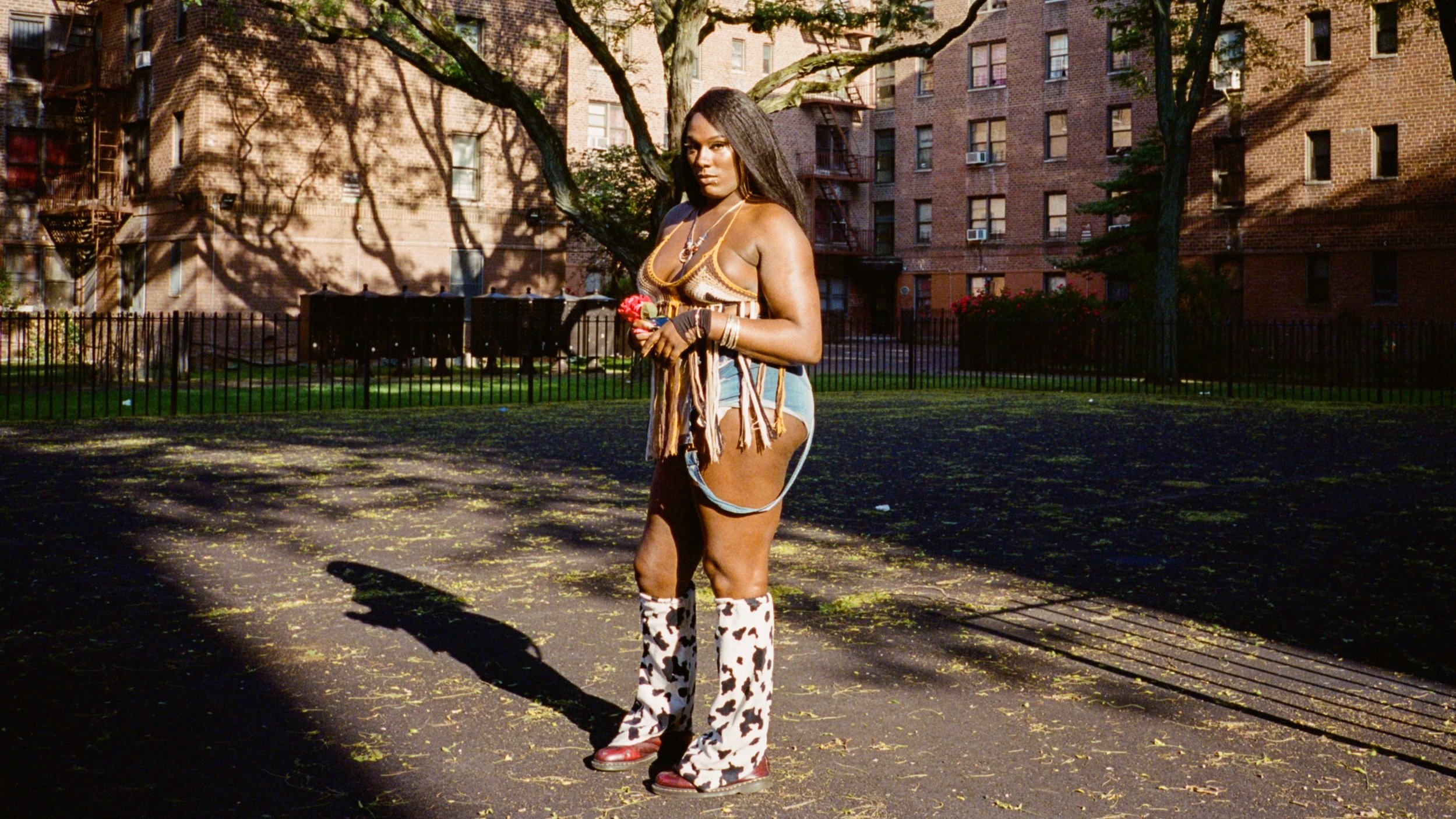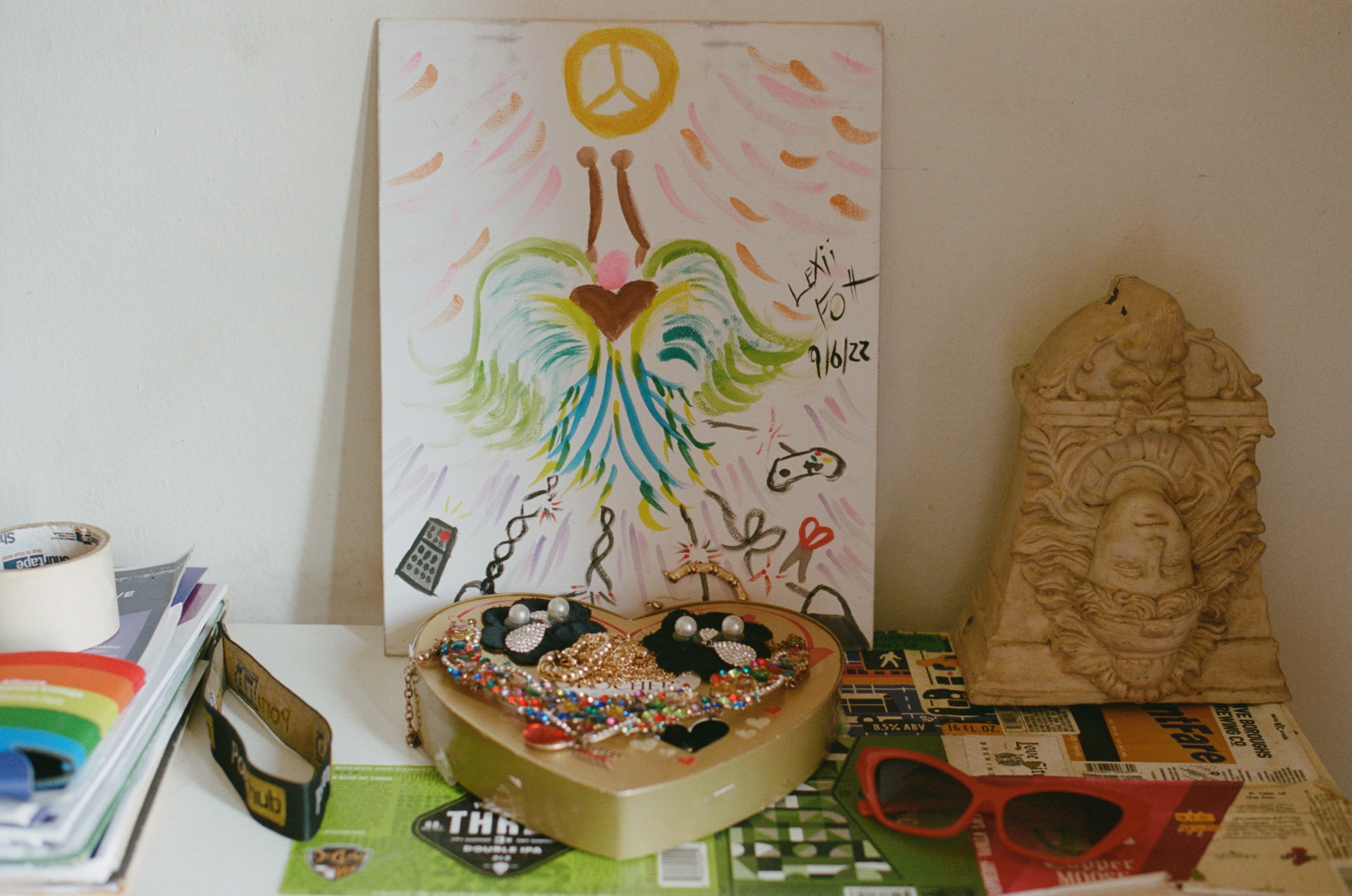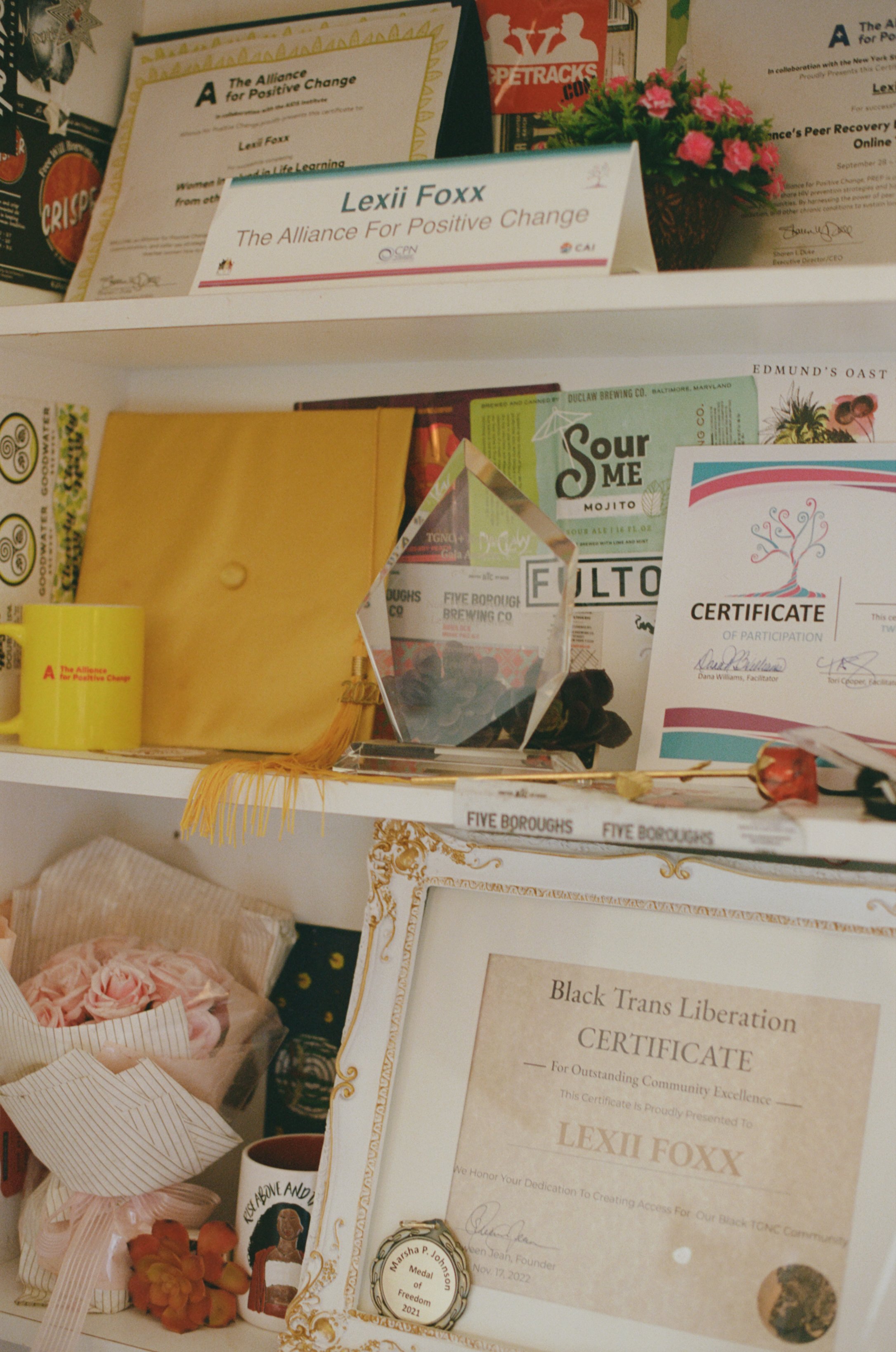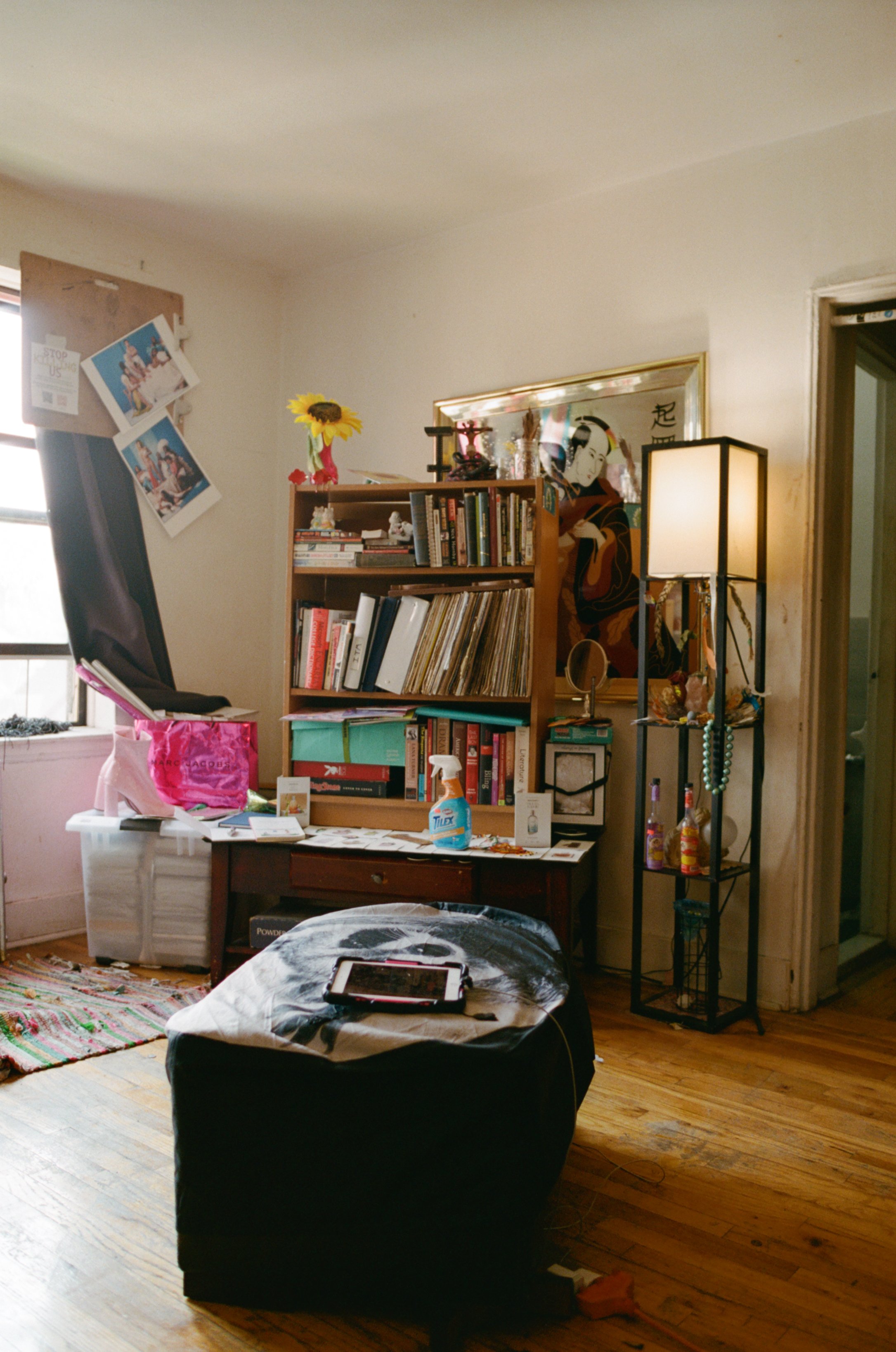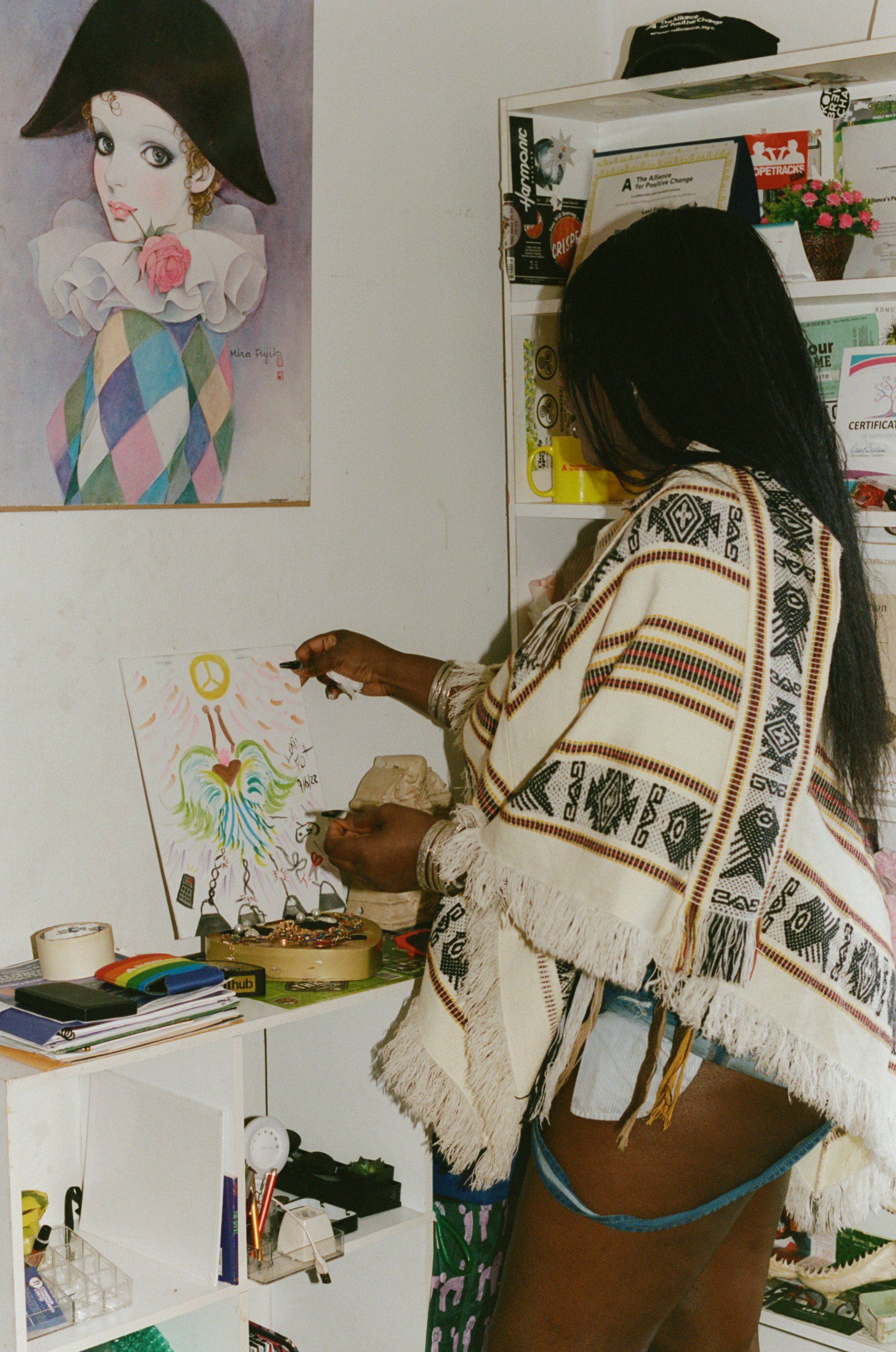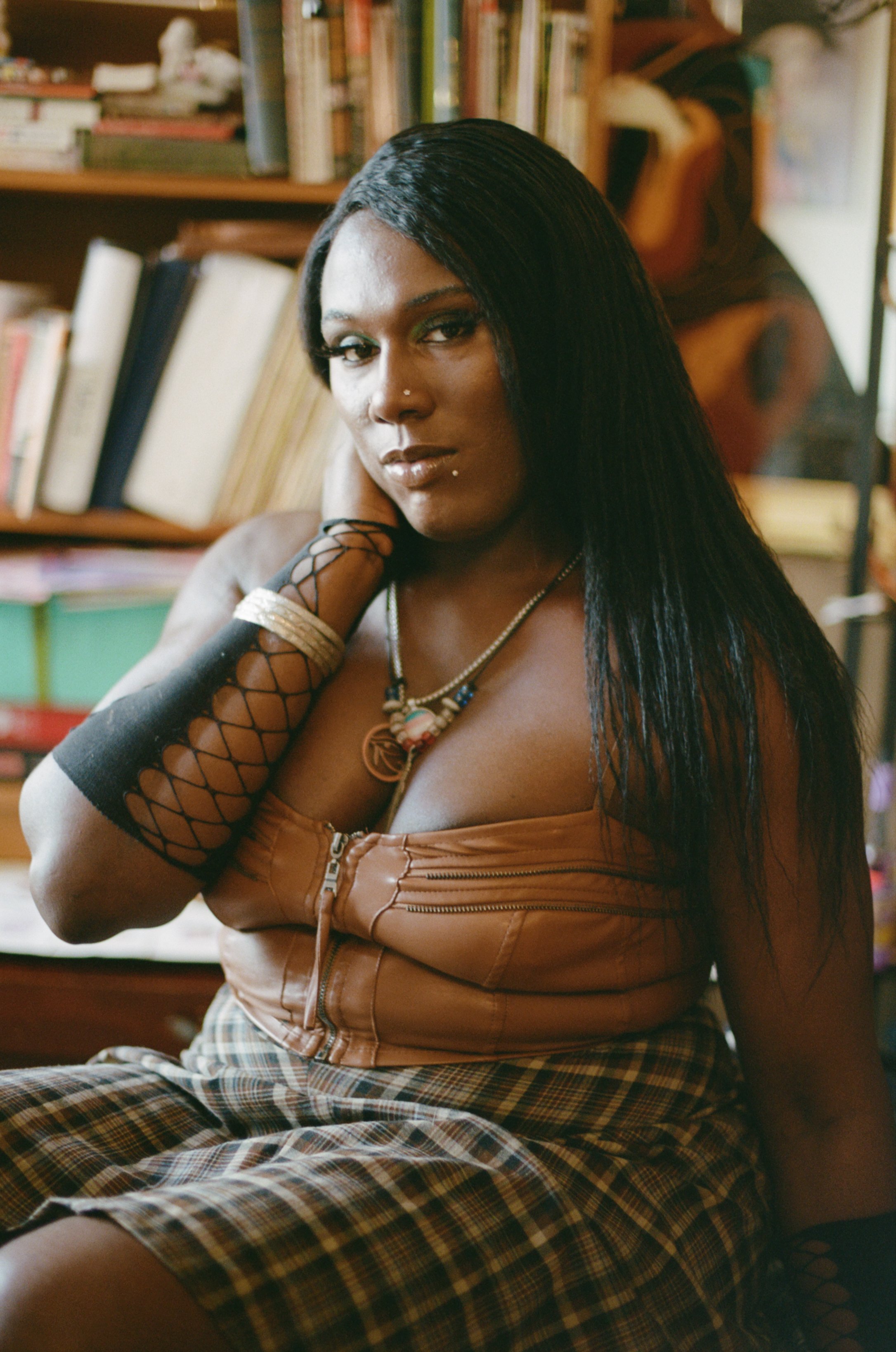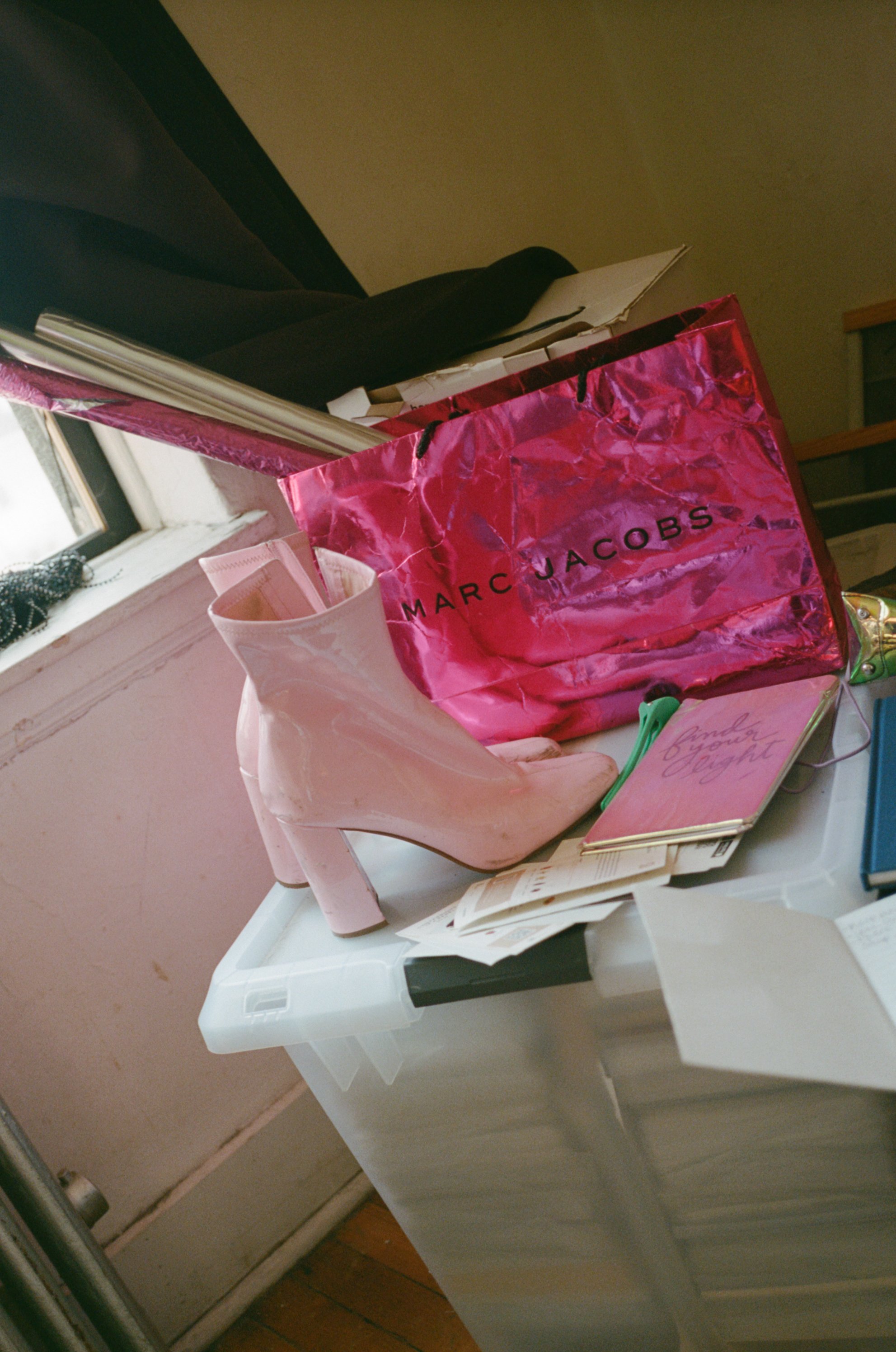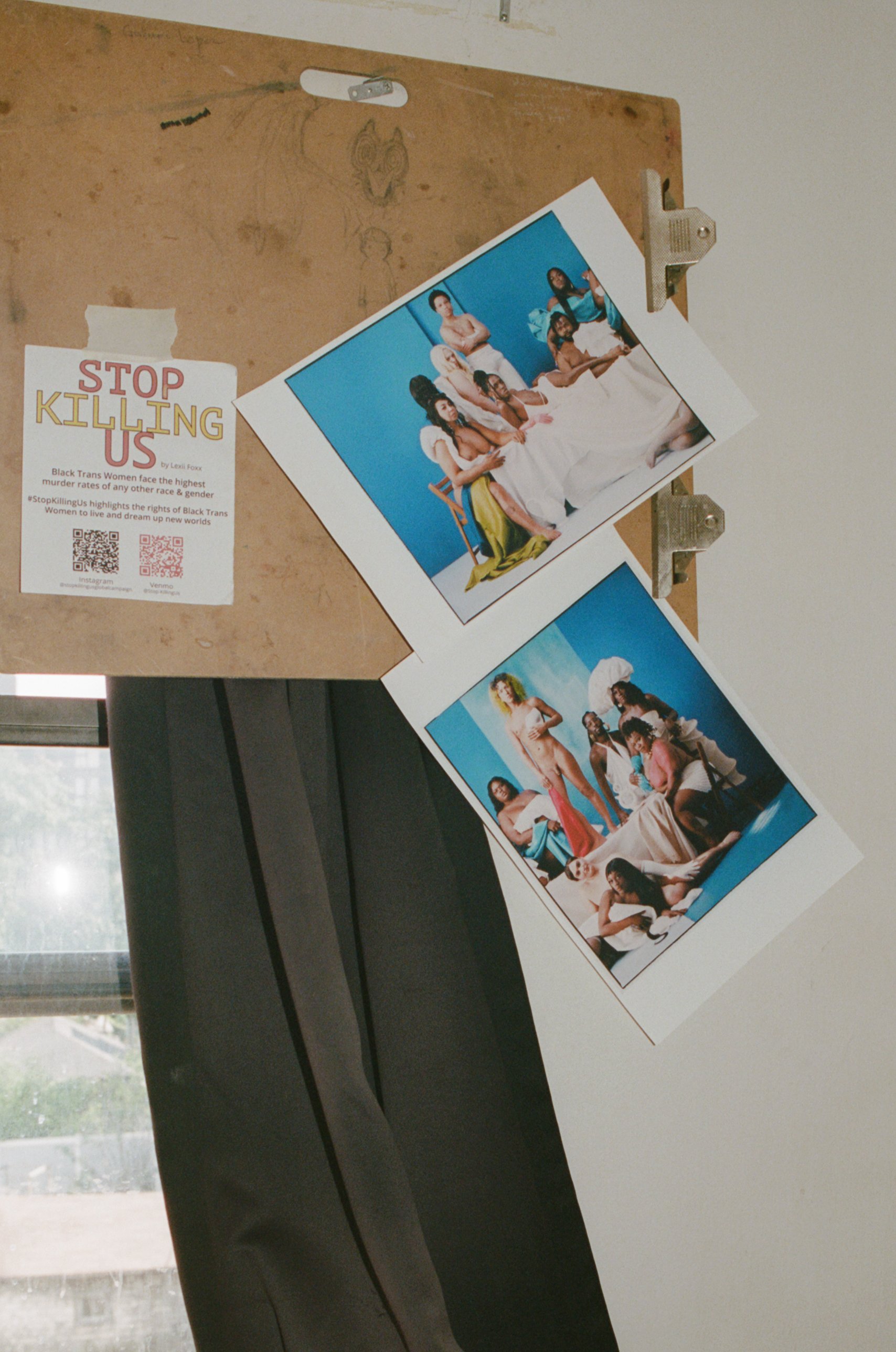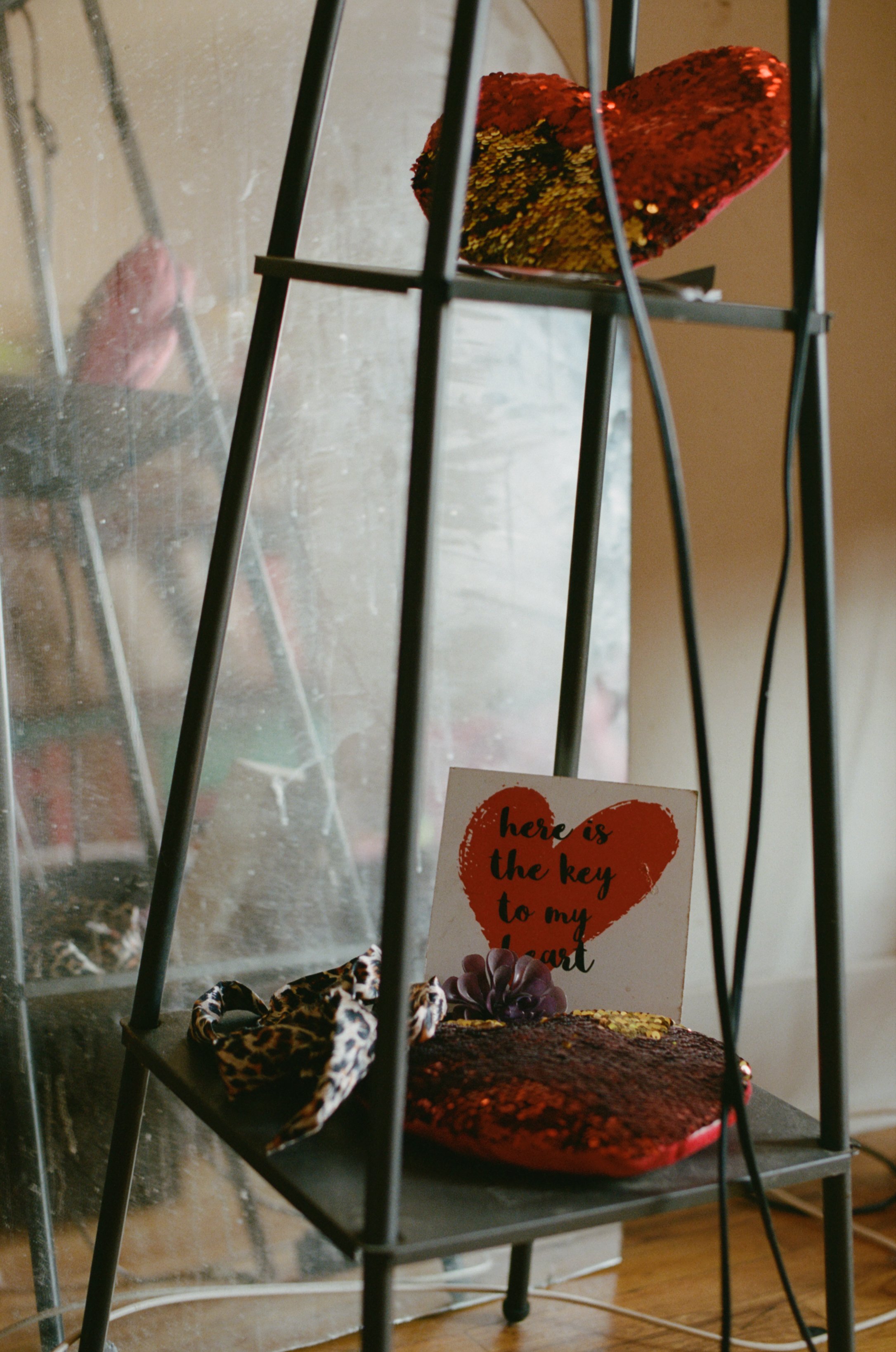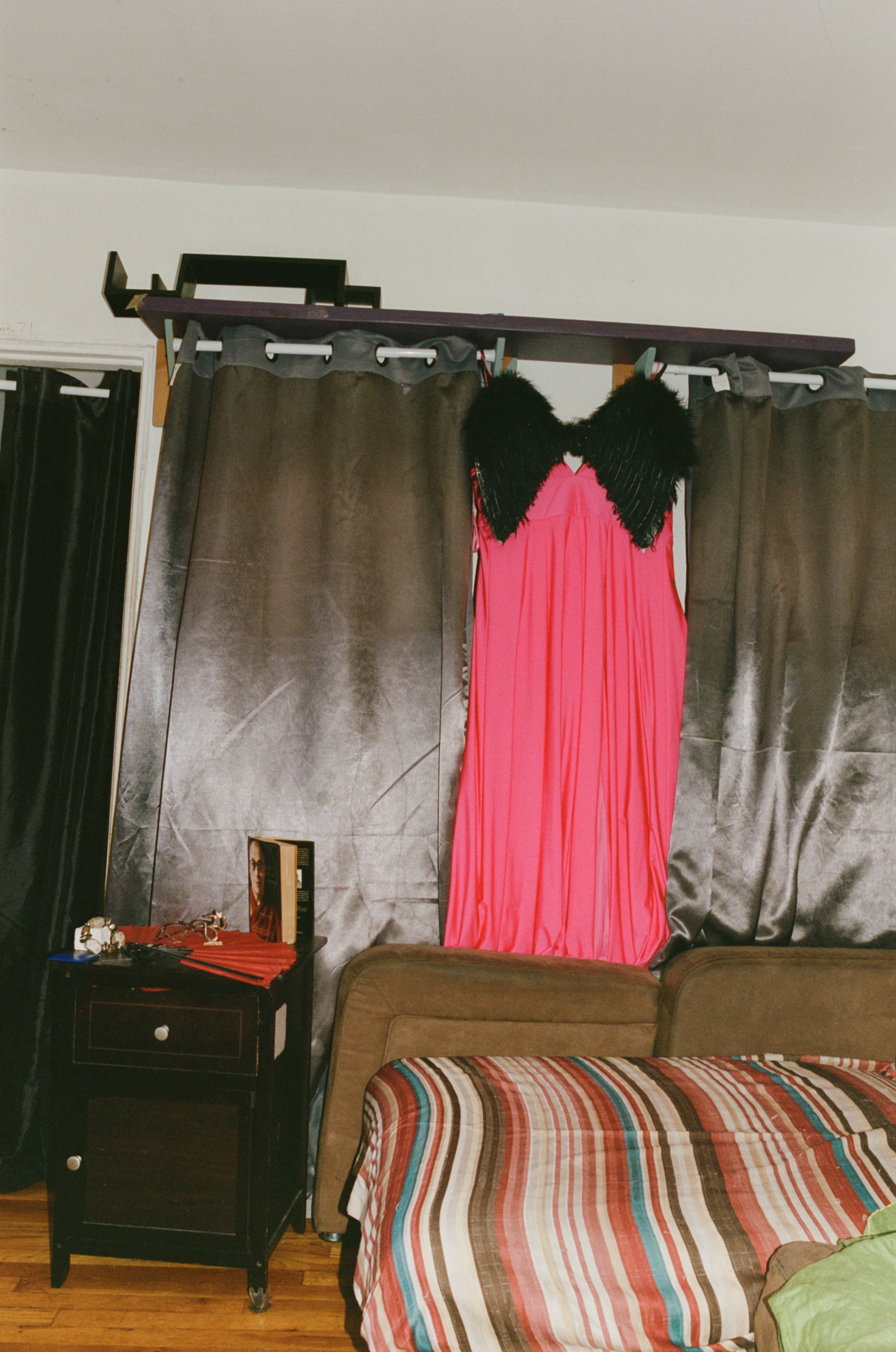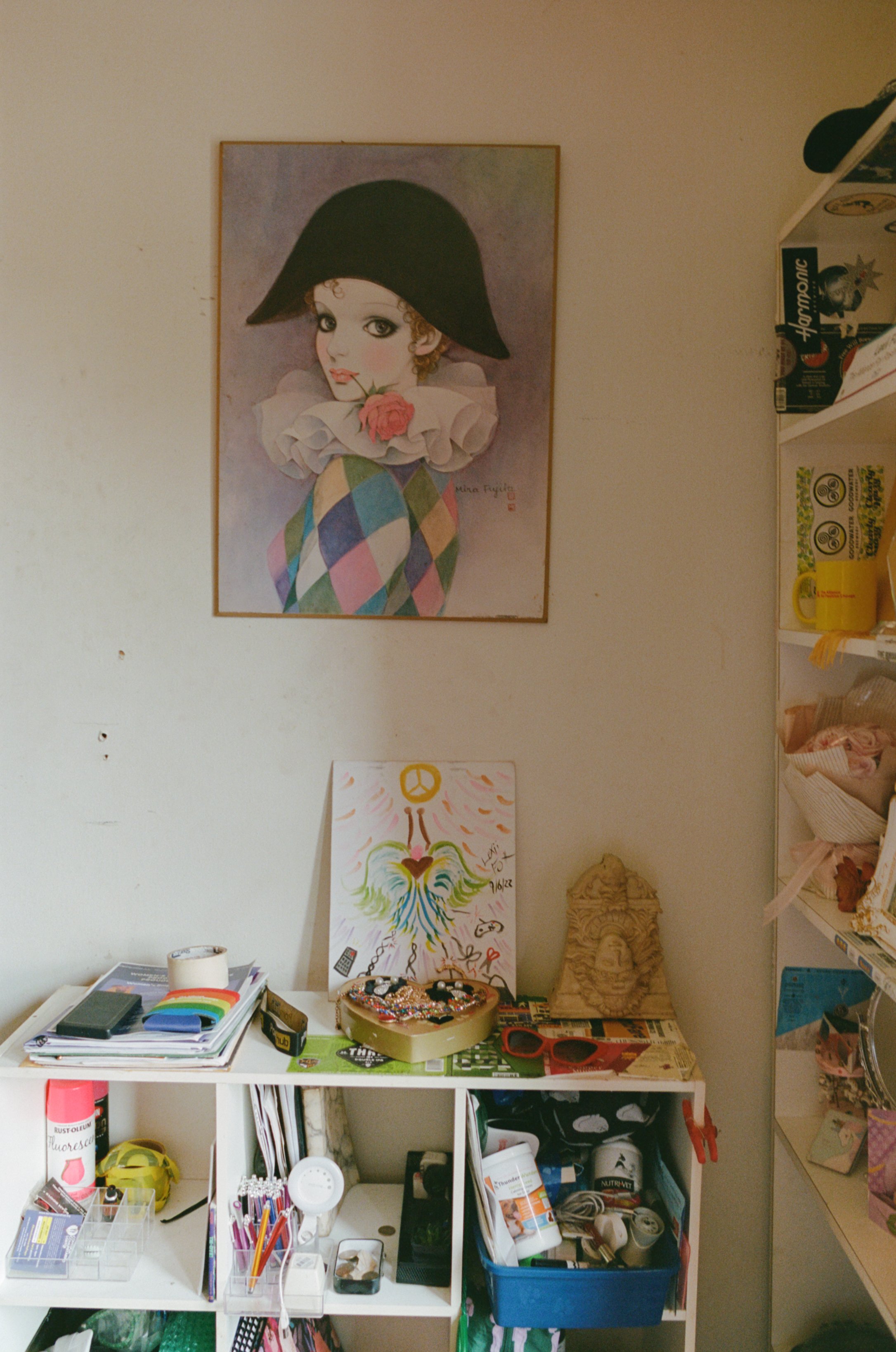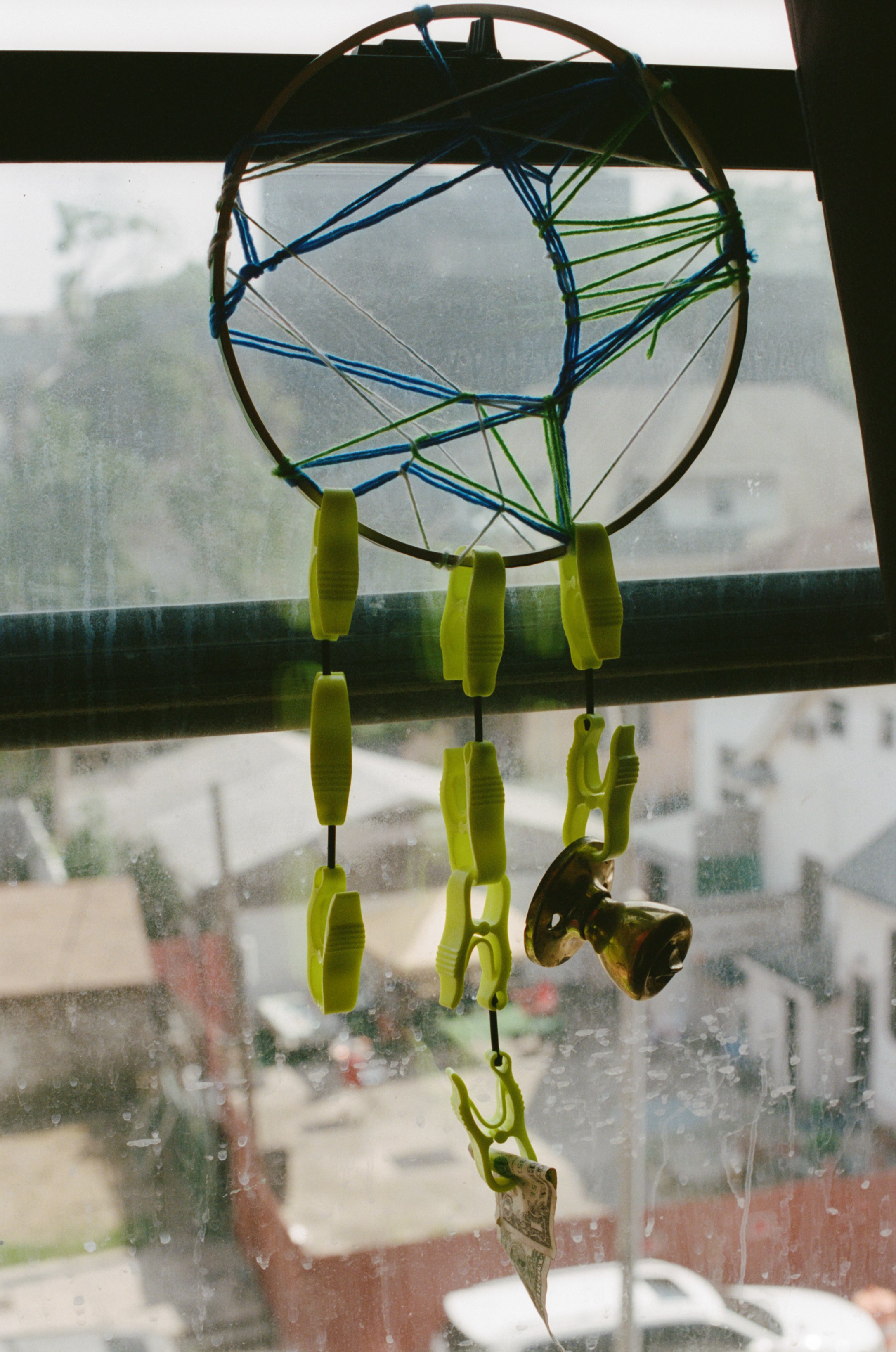Meet Lexii’Foxx
If you see sex worker, activist, and performance artist Lexii’Foxx around NYC, she’s likely doing outreach for her jobs with the Alliance for Positive Change, the House of Transcendence, or Black Trans Liberation Kitchen, sharing tools and resources for drug and sex-related harm reduction, all the while performing the Beyoncé choreography she’s long since memorized and opening her heart to anyone, especially other trans women of color, who needs her support. We had the chance to talk to Lexii about how she manifested herself as a superhero (or sexy villain?), the merits of weird art people dinners, empowering sex workers to choose their battles, and much more.
on her morning routine
I’m usually running out of the house, late for something. I have a punctuality issue. My sister and I like to call it “trans time.” When I wake up, sometimes I'll do stretches, maybe some meditation music — I like listening to the sounds of water. I listen to a lot of Beyoncé, especially her live performances. They motivate me to move. I feel like I'm always performing. Back when I was homeless, my friends and I would always find happiness in performing for each other. I had just recently united with my chosen family, we would come out with sheets wrapped around ourselves and perform our favorite songs. We learned choreography from watching Beyoncé videos, then in the club, we would do synchronized dances together. It was so cool. I miss my family.
on her superhero-esque origin story
I love my mother so much. She showed me a resilient, strong woman — she also always said “I did every drug under the sun.” As of now, she's a nurse and administrator in the medical field, but she was on a lot of drugs when I was young. I was taken away from her and sent to live with my grandmother. My parents divorced when I was really young. My father was a truck driver, he had kids all over America.
Growing up, I always thought I was gonna be a performer, I don’t know why. I was just a very fun character. When I was a kid, all I would draw was a woman with long gloves, looking like something from X-Men, with thigh high boots and long hair. I was under 10 years old, drawing this stuff. Now, I look at myself before performances, and I know that I was manifesting my current self that whole time. I used to draw fox tails on these women, and now I’m Lexii’ Foxx! The story behind “Lexii’” is so fucking lame…I just thought about names that rhymed with “sexy.” I'm cheesy sometimes, and the rhyme helped advertise the sex work I was doing at the time.
““Before being taken away from my mom, I hardly even attended elementary school. I failed third grade twice. I don’t feel like I learned anything, academically, during my schooling. I dropped out around tenth grade. Before that, I did four years’ worth of honors art in two years, when we had the chance to do double electives. I played the violin starting in fourth grade. I got to the point where I couldn’t read sheet music anymore, but I could always play along with the orchestra and I somehow always made it to first chair. I aggravated my teacher because I could only play things I could hear. I wonder if I can still do it now, it’s been a few years.””
on her family ties
I am in touch with my mother and my father. My mother is finally getting hip to my name. When I was younger, my father told me “If I find out you're gay, I'm never gonna speak to you again,” but surprisingly, he now accepts me and embraces me, almost more than my mother. He’s on his fourth wife, in Georgia, and he's always telling people, “I have a trans daughter now.”
I censored a lot of things about myself when I was younger, because both sides of my family were devout Christians, and I respected everyone's religion. Now, I really am finding myself when it comes to religion. It's more spiritual for me, and it’s come alongside finding my sexuality. I started being more real with my mom and dad after I got to New York. I told them that my years of “being on the road” and “touring” were years of sex work, partly due to me not having the option to come home to either one of them when I asked — because I was trans, the doors weren’t open anymore. As of now, my father, at least, has open arms. His new wife asked me to come down to Georgia any time, she’s been begging me to come down for their wedding. My mom made two attempts to come up here and see me, but I was out of town.
My brother is a really cool person — I only recently connected with him for the first time, he’s the reason I came to NYC. He loves me a lot. He's Puerto Rican and Black, a real husky guy. When we were walking down the street together in NYC, he noticed all the guys that were hissing at me and was like, “You're walking all sexy!” I was like, “Brother, I can't help it. These men are just gonna do this.” He asked, “How do they all know I'm not your boyfriend?” He was so overprotective, it was just too funny. I said, “Get used to it.”
““My friend Jade Guanaro Kuriki Olivo gave me my first chance to do my install at Performance Space New York on the Lower East Side. I did this peaceful performance of meditation. I moved very slowly, and I would stop moving when the audio track educated the audience about sex workers. Sex workers come from all different paths and do all different kinds of things, but it’s all to the same end. Work is work. We do it for the same reason that anyone does any job. In my performance, I was trying to normalize and take the stigma out of sex work.””
on her time as a small town sex worker
I started doing sex work at around 17, in North Carolina. I escorted as a male before transitioning and living as a woman, starting in my early 20s. I started taking hormones maybe three years ago, on and off, not every two weeks like I was supposed to, but that was my life — at the beginning, I wasn't going to the doctor for hormones, I was buying them off the street. That's when I was traveling the United States, staying in hotels when I could. I was homeless for many years.
It seemed as if [sex work] was the only way of life for queer people who did not have the option of going to school, continuing school, or getting a job back home. When I was presenting as a cis, queer Black guy, I was landing a lot of retail mall jobs, working for commission at skin product booths, then I drifted to this store called Spencer's, similar to a Hot Topic, for four years before I finally left North Carolina, but traditional jobs have always been iffy for me. It became even more difficult living as a trans woman. I tended to hide myself even more from the job market.
As far as being a sex worker, I always had to be on the move, I always had to be a new girl in a new city. It wasn't safe to always stay in the same spot because so many people watch you and there are many different laws [around sex work] in different states. We [trans sex workers] had to watch other people and see what they did. It wasn't only me who was homeless, it was groups of people that I knew — we would stay in contact with each other and hole up all in one house at a time, as long as that would last. There were almost 30 of us sometimes in a one or two-bedroom. One of us would have a car. We were misfits, but we were all very magical. There were these little cliques — a military clique, little prissy cliques — in small-town North Carolina, we didn't have many social realms to occupy. We would always meet up at the clubs. A lot of my chosen family has died off, some by drugs and some from HIV. HIV meds are not as accessible in North Carolina. We're so young, and people way younger than me are dying off. I'm only 32, but I've lost so many of my friends my age or younger.
““You can look into what it looks like to be a good ally, for starters. Understand your privilege. Get to know the person. Be resourceful. Do your homework and see what you can do. Helping someone can manifest in many different ways. I believe everyone has some sort of privilege that they can share. I was like, ‘I’m getting into this art world, they pay a lot of money for the weirdest things, and they just talk in funny little voices and have a lot of fancy dinners.’ A lot of that time can be put into the community in so many different ways. Of course, money helps, but money is very temporary. Let’s build foundations.””
on working with and for her community
I work for the women's department at the Alliance for Positive Change, usually doing outreach to people under the trans umbrella. I do check-ins, and if people need help, I help. People call me “the condom lady,” or “the gift card lady.” I get a positive vibe when people speak of me, usually. People will say, “That’s the lady who has resources.” There's no specific “look,” I'm looking for anybody who might need help. Everybody knows that wherever I invite them will be a safe space, and nine out of 10, there’ll be some good food to eat. They know we're going have fun, and it's going be empowering.
We perform many different types of interventions, helping people get off substances sometimes, or lessening their abuse — prevention, too. I teach a lot of lessons on sexual conduct, how STIs spread, how to prevent them. We now have things like PReP and DoxyPEP. Who wants an STI? Especially sex workers, doing the work they do. Some man might be dangling money over them, saying, “Hey, you should take this, because you need it.” I want to be the person to fund them the cash they need to say, “I actually don't need it. I'll choose my battles when I want to, but I don't want to do this.” I want them to at least have that. I know that there are so many homeless sex workers out here and they're still trying, just surviving day by day, paying their rent, sometimes barely having food. Some sex workers have other jobs and are in school, but sex workers show up in this world in so many different ways.
I'm still not completely established with what I have going. I would love mentorship and guidance. I think I need a grant writer that can understand me and stick by me. I want to be able to receive money and just give it right back out. Of course, I want to do the work, but I also need to help myself sometimes. I get burned out a lot, I put my own sex work resources into the community, and I want to be able to focus on my other practices, like art curation, as well. I work for a lot of different organizations — the Alliance for Positive Change, the House of Transcendence (founded by Linda La), Black Trans Liberation (shout-out to my friend, the founder Qween Jean), and a few other nonprofits. At the Alliance, we do STI testing alongside things like painting, candle making, and artist meet-and-greets. At one event, we had set up for people who just wanted to take photos and feel empowered in themselves. We did a clothing drive and gave food away. My friend and I were recently discussing a park where a lot of sex workers spend time. They use a lot of IV needles, and the area needs to be cleaned so diseases won't spread. We're going to do a clean-up and bring sharps boxes. There's so much work to be done, and of course, I can’t do it all, but I'm trying. I’m also trying to get some community fridges started in areas where I know they’re needed, which are high-traffic sex work areas. The workers might just be hungry, they may not have made money that night. With a community fridge, they can simply grab some food and take it home. My boss, Dr. Erin McKinney-Prupis, helped me organize a lot of different trips for trans women in need. The first was a Broadway show and some of the girls came back crying, saying they’d never seen anything like that before. I got to see my first trans Broadway actor. We went to the tallest building in New York and looked down upon the city.
““I feel sexiest when I’m damn near naked sometimes, in a scandal, as I like to call it. I love thigh high boots, extensions, long gloves that go up my arms, looking like a sexy villain. I like vampy looks, long nails and long hair with my titties pushed up to my chin.””
on what she’s reading
Cyberfeminism Index by Mindy Seu, Exquisite Mariposa by Fiona Alison Duncan, and Flowers in Temporary Hands by J.J. Adams.
on her beauty routine and personal style
My skincare routine is just lemon, lime, and aloe, it helps with scars. I shave sometimes. Being a trans woman, I’m working on the laser [hair removal] thing. I also do a little bit of steaming, a little bit of Beyoncé, and a little bit of singing in the shower. Throughout the day, I play healing frequencies, which helps to center me and helps me think. I like listening to brown, white, or pink noise.
A lot of the hotels I would stay in with other homeless trans women were be conjoined rooms to save money, and there were big mirrors and double sinks. We all had our own makeup stations and we would teach each other our tricks. My signature look is a cat eye, and I like highlighter-heavy looks and pinched nose looks. I love highlighting my cheekbones. I’ll literally use anything, makeup-wise, but when I can afford things, I like the Smashbox Photo Finish primer because I have the oiliest skin ever, and I like the matte look. I also love the Urban Decay All Nighter setting spray. For concealer, I like Tarte or Too Faced.
For my nails, I used to do acrylic, but now I do press-ons because it saves a lot of money. They just had a great drop of nails in the H&M collab with Mugler. My best friend bought me a pack, they were the best ever — there were these silver nails that really popped on melanated skin.
lexii’s favorite spots in nyc
I love Urban Vegan Kitchen on West Fourth, I recommend the Korean barbecue chicken. You may want extra sauce, because it's really good. For dancing, I like to go to Nowadays — sometimes, they have nonstop, weekend-long parties. I like thrifting, but my favorite non-thrift shops are Pretty Girl and Rainbow. Nothing expensive.
interview and images by clémence polès, edited by em seely-katz

